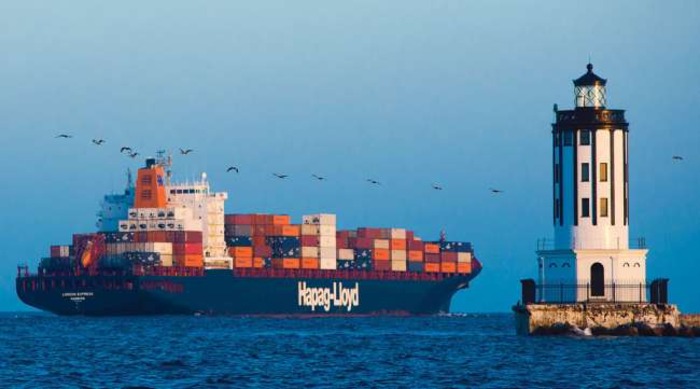The latest spate of violence and piracy within the Pink Sea is sending ripples of concern throughout the Nigerian economic system, with fears it might exacerbate the nation’s already regarding inflation price.
The Pink Sea is essential to delivery greater than 15 p.c of the worldwide maritime commerce and 30 p.c of container commerce, but latest assaults on industrial vessels within the space by Iran-backed Yemen’s Houthi rebels have scared off a number of the world’s high delivery corporations and oil giants.
With disruptions to delivery lanes and rising insurance coverage prices, companies are bracing for greater costs for imported items, which could possibly be handed on to shoppers within the type of greater costs.
“It is a drawback for import-dependent international locations,” John Stawpert, senior supervisor of surroundings and commerce for the Worldwide Chamber of Transport, which represents 80 p.c of the world’s industrial fleet, advised CNBC.
Nigeria’s meals importation elevated by 41 p.c to N643.68 billion within the third quarter of 2023, in response to information from the Nationwide Bureau of Statistics.
Stawpert famous that 40 p.c of Asia-Europe commerce usually goes by the waterway. “It has the potential to have an enormous financial impression,” he stated.
Among the many economies most affected by the commerce disruptions could be Greece, Jordan, Sri Lanka and Bulgaria, in response to Bloomberg, which cited analysts.
These ships that select to reroute should sail round Africa to achieve Europe, which is estimated to trigger seven to 10 days of delay, in response to the report.
Findings confirmed main worldwide delivery corporations MSC, Maersk, CMA CGM Group and Hapag-Lloyd, in addition to British oil large BP, stated they might droop their operations within the Pink Sea.
“The impression will likely be longer transit occasions, extra gas spent, extra ships required, potential disruption and delays — not less than within the first arrivals in Europe,” Simon Heaney, senior supervisor of container analysis for Drewry, a maritime analysis consultancy stated in a notice.
That brings up the price of delivery, however “I don’t suppose it’s going to go to the heights that it reached throughout the pandemic,” Heaney stated.
Stawpert stated he would anticipate to see some value will increase for shoppers within the quick time period however that it is dependent upon how lengthy the safety menace lasts.
James Dorsey, a senior fellow at Nanyang Technological College’s S. Rajaratnam College of Worldwide Research in Singapore, stated diverting the vessels is not going to simply improve transport time, it additionally means a big leap in insurance coverage and gas prices, delayed supply, and even impression inflation in some international locations.
Nigeria, Africa’s largest economic system, is grappling with stubbornly excessive inflation. The nation’s inflation price has been on the rise in recent times, reaching an 18-year excessive of 28.2 p.c in November.
“We’re already grappling with rising meals costs resulting from home elements like insecurity and the continued struggle in Ukraine. Now, with imported items changing into dearer, the squeeze on family budgets will solely tighten,” Aisha Hassan, an economist at Sofidam Capital, stated.
Africa’s most populous nation has did not develop extra meals for its fast-rising inhabitants, which have to be fed with staples starting from rice, beans, tomatoes, and maize, amongst others.
This has compelled the nation to spend hundreds of thousands of {dollars} yearly importing meals, thereby placing strain on its overseas change reserves and importing 1000’s of jobs it might have created if the merchandise had been grown regionally.
The federal authorities has within the final seven years spent billions of {dollars} on numerous agricultural programmes to spur native meals manufacturing.
Nevertheless, there may be nonetheless no vital impression because the nation nonetheless has an enormous demand-supply hole in most of its staple meals, even because the inhabitants progress price stands at 2.5 p.c in 2020, in response to the World Financial institution.
NBS information confirmed a complete of N1.9 trillion price of meals merchandise had been imported into the nation in 2022, indicating a 5 p.c rise in comparison with N2 trillion spent on meals importation in 2021.
In 2020, Nigeria imported N1.2 trillion price of agricultural merchandise for the yr. In 2019, the nation imported N959 billion price of meals, accounting for five.66 p.c of whole imports. It imported N857.6 billion and N886.8 billion price of meals merchandise in 2018 and 2017 respectively.
“The info is proof that may nonetheless not develop sufficient meals and we’re left with no possibility however to import,” AfricanFarmer Mogaji, chief govt officer of X-Ray Consulting Restricted, stated in a response to questions.
“Imports are surging regardless of steady authorities help and that is due to the excessive insecurity price within the nation,” he stated.


